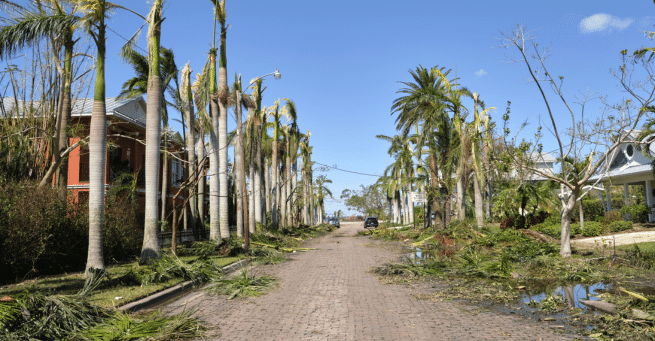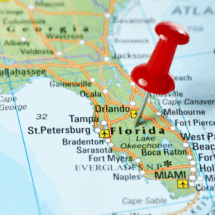Opportunities in the Florida Insurance Industry
Starting a career in insurance can be a smart move, especially in Florida, where the demand for knowledgeable, licensed agents continues to grow. But before jumping into the field, the first step is getting properly licensed. The application process can feel overwhelming if you’re not sure where to start, but breaking it down into clear steps makes a big difference. Whether you’re new to the industry or switching careers, knowing what to expect helps set a smoother path forward.
From gathering paperwork to completing education requirements, each part of the process plays a role in getting you licensed and ready to begin working. When everything is laid out step by step, there’s no need to second-guess what comes next. With a straightforward plan and a little patience, submitting your Florida insurance license application becomes much easier. Here’s how to get started.
Gather Required Personal Information
Before jumping into courses or filling out applications, the first thing to do is organize your personal information. It may seem basic, but one small error or missing document can delay the rest of the process. Having everything lined up at the start saves time and helps avoid last-minute headaches as your application moves forward.
Here’s what you need to put together:
– A government-issued ID, such as a driver’s license or passport
– Your full legal name, Social Security number, and date of birth
– A current mailing address and functional email account
– Documentation of any previous names or aliases
– Records related to background checks, if required
Take a moment to double-check your information across all documents. Even something small like a typo in your name or an outdated address can lead to delays. It’s also helpful to set up a physical or digital folder to keep all your application materials in one easy-to-reach place. This makes each step quicker when you’re not hunting through files to find what you need.
Complete Pre-Licensing Education
Once your personal information is ready, the next step is to complete the required pre-licensing education. Florida mandates a set number of training hours based on the type of insurance license you plan to pursue. Whether your focus is life, health, or property and casualty insurance, the courses are structured to help you meet state standards and build a solid foundation for your future role.
These pre-licensing courses cover essential topics like Florida insurance regulations, policy types, ethical practices, and industry-specific terminology. While the material might feel dense at first, it’s all there to prepare you for the state exam and the realities of working as an agent. Many courses are available online, offering flexible options so you can learn on your schedule.
When picking a course, look for:
– State approval by the Florida Department of Financial Services (DFS)
– Coverage of core topics relevant to your license type
– Access to quizzes, practice tests, and exam prep tools
– A delivery format, such as livestream or self-paced, that matches your learning style
Think of these classes as your foundation. They’re more than just a requirement — they help you feel confident when it’s time to take the state exam. Give yourself enough time to digest the material and avoid trying to rush through it in one go.
Submit Your Insurance Application Online
After finishing the education portion and receiving your certificate of completion, it’s time to submit your license application. This part is done entirely online through the Florida Department of Financial Services. You’ll need to create a MyProfile account and complete the application under the correct license category.
Follow these steps to stay on track:
1. Set up your MyProfile account on the Florida DFS portal.
2. Select the license type that matches your pre-licensing course.
3. Carefully fill in your personal information.
4. Upload your certificate of course completion if needed.
5. Pay the state licensing fee with a debit or credit card.
Before you hit submit, take a few minutes to double-check your entries. Errors like an incorrect Social Security number or mismatched details can cause processing delays. Save a copy of the confirmation page and payment receipt. Having proof on hand is useful if you need to follow up or verify your application status later.
Schedule and Prepare for Your Exam
Once your license application has been processed, you’ll be cleared to take the state licensing exam. You’ll receive confirmation from the DFS with instructions for registering and scheduling your test through Pearson VUE, the approved exam provider in Florida.
When you schedule your test date, pick a location and time that gives you enough breathing room to study. Use your pre-licensing course materials as your main study tools, but go beyond just watching videos or reading content. To better prepare, do the following:
– Retake chapter quizzes and use timed practice exams
– Study key terms with flashcards or apps that fit your style
– Give extra attention to areas where you struggled in your course
– Get a good night’s sleep and eat before the test
– Bring the right ID and test confirmation documents
Some people assume they’ll remember everything from class without reviewing, but the Florida license test can be tricky. It’s packed with detailed questions drawn directly from Florida policies and laws, and some can be confusing if you haven’t reviewed them recently. Preparation gives you the best shot at passing on the first try.
Getting Approved and Next Steps
After the exam, the wait begins. It doesn’t usually take long, but your test results and application will go through one final review stage before your license is approved. Once it’s all cleared, you’ll get a notification and be able to download your official license right from your MyProfile account.
After your license is issued, consider these next moves:
– Log in and download your license to keep a personal copy
– Check for any additional actions or onboarding from DFS
– Get familiar with renewal timelines and continuing education requirements
– Reach out to agencies or hiring managers if you haven’t already
This period marks the transition from preparing to starting real work. It’s a good time to get organized and create a plan for tracking your license status and staying in good standing with the state. Florida requires continuing education after you’re licensed, so staying ahead of calendar reminders now will help you manage it more easily later.
Starting Strong with Your Florida License
By now, you’ve seen that the path to becoming a licensed insurance agent in Florida isn’t as confusing when broken into stages. From getting your documents in order to passing your exam, each step builds on the next. Having a plan and sticking with it goes a long way in helping you reach your goal.
The process may include a few moving parts, but they all serve a purpose. Whether you’re starting fresh or switching careers, being licensed unlocks real opportunities across Florida’s insurance industry. If you stay focused and pace yourself, you’ll be ready for what comes next. The work you’ve put in gets you one step closer to helping clients and building your future in the field.
Ready to take the next step in your insurance career? Learn how you can get started with the right tools and guidance through insurance licensing in Florida. All-Lines Training is here to support your journey toward becoming a licensed insurance professional with confidence.



